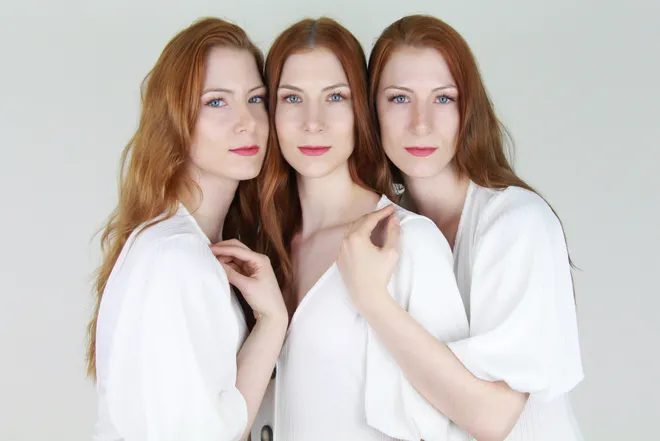Triplets refer to three children sharing the same womb during a single pregnancy.
Just like twins, triplets and quadruplets are categorized by their level of similarities or zygosity.
And in most cases, triplets are either trizygotic or dizygotic (fraternals) which are not usually identical.
Trizygotic triplets are not identical but with dizygotic only two are identical, and these are the ones formed by the same egg.
Identical triplets are rare but not impossible; in fact, the likelihood of getting identical triplets is quite low.
While you may have seen normal triplets, celebrity identical triplets are even rarer. If you’ve seen the Levesque Triplets on the runway, you might be wondering just how unlikely it is to have identical triplets.
The Number of Identical Triplet Sets on the Planet
Even though it may seem impossible, you can conceive triplets, but getting identical triplets is quite rare.
Unfortunately, there is no statistics showing the exact number of identical triplet births on the planet, but the number of triplet births varies with each year.
For instance, the CDC reported 2,785 triplet births in 2021 in the U.S. alone. They never specified the number of identical triplets born in that year.
But there were cases of identical triplet births in the U.S. that year. The popular set of triplets born in 2021 was Nadia, Olivia, and Anastasia who were born at Pennsylvania University Hospital on July 8.
How Rare Are Identical Triplets?
The birth of multiple kids accounts for a very small percentage of births (less than 3%), but it has been increasing in the last 3 decades.
According to NCH statistics, the twin birth rate has grown by 70% since 1980. The births of triplets also increased but it started slowing down in 1998.
The CDC reports that the likelihood of getting triplets is usually 4,300 sets in about 3.9 million pregnancies. This means less than 1% of the births or 1 in every 1,000 births are triplets.
Out of these births, the ASRM claims that only 10% are identical triplets. But only 4 identical triplet births were reported in 2015 in the United States, which is 1 in a million live births.
Therefore, the likelihood of getting identical triplets is unclear, but most sources claim it’s between 1 in 60,000 births and 1 in 200 million births.
There is no exact consensus on the probability of getting identical twins and the experts are yet to agree. That’s because they believe there is a natural attrition to the number of identical triplets’ beings born every year.
According to PEW Research Center, the African American population accounted for 4.1% of the multiple births in 2014. The whites accounted for 3.8% followed by the Asians (3.2%), but this doesn’t mean that Africans have the highest number of triplets on the planet.
Fraternal vs. Identical Triplets
A huge percentage of the world’s triplets are trizygotic. This means that they weren’t formed from a single fertilized egg.
These triplets are formed when three sperms fertilize three eggs. These kids are not identical and can be of opposite genders, but they do share some characteristics.
In some cases, two of them can be formed from the same egg (identical) while the third one is from a different egg that’s fertilized separately.
On the other hand, identical triplets are formed when a single sperm fertilizes one egg and the zygote splits into three. The fertilized egg may also divide into two and then one of them splits again forming three zygotes.
When this happens, the kids will be identical triplets. The splitting occurs immediately after fertilization and even before you know that you’re pregnant.

